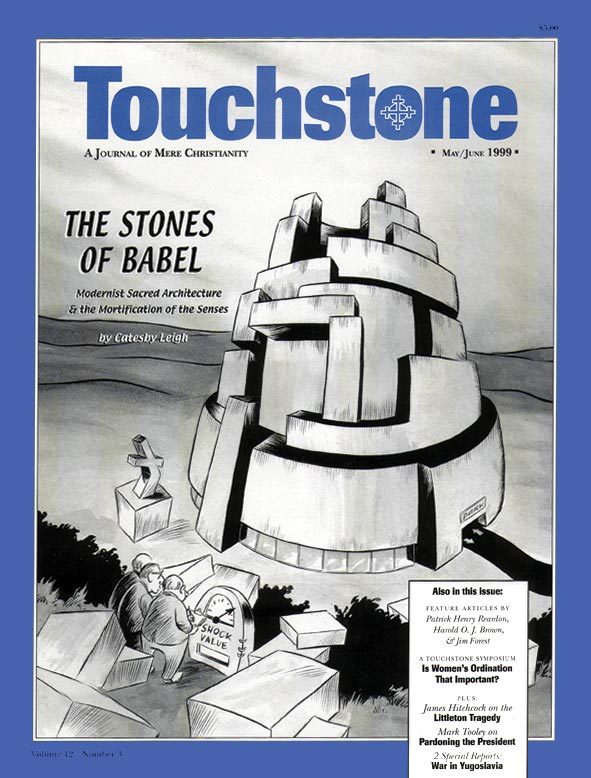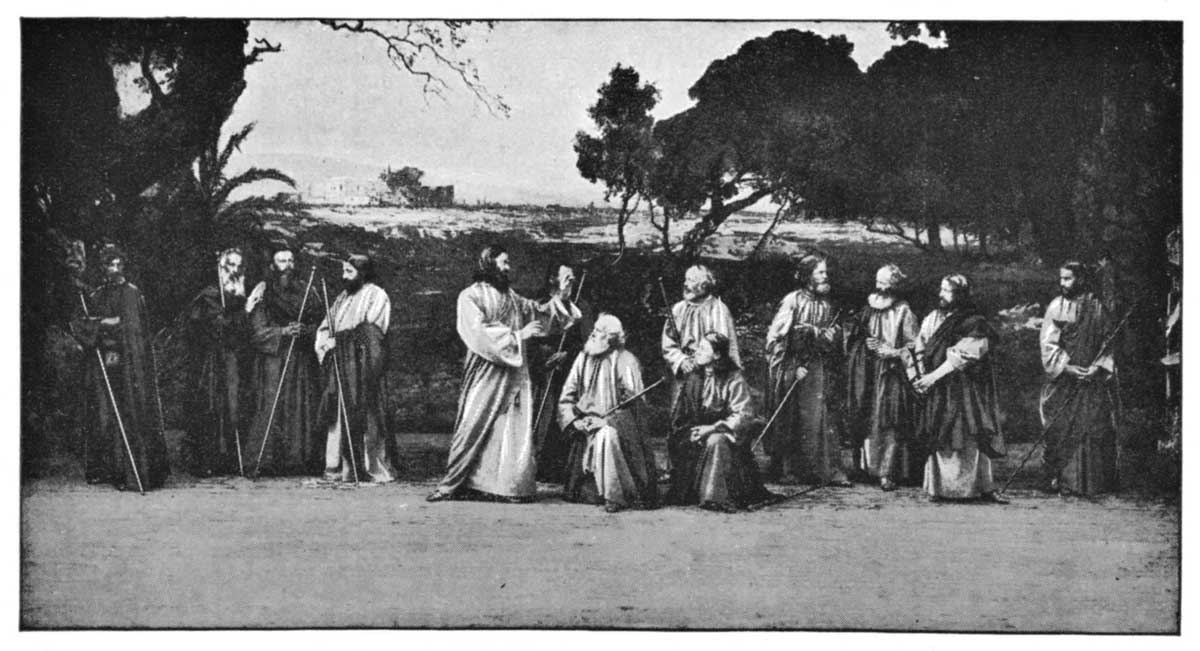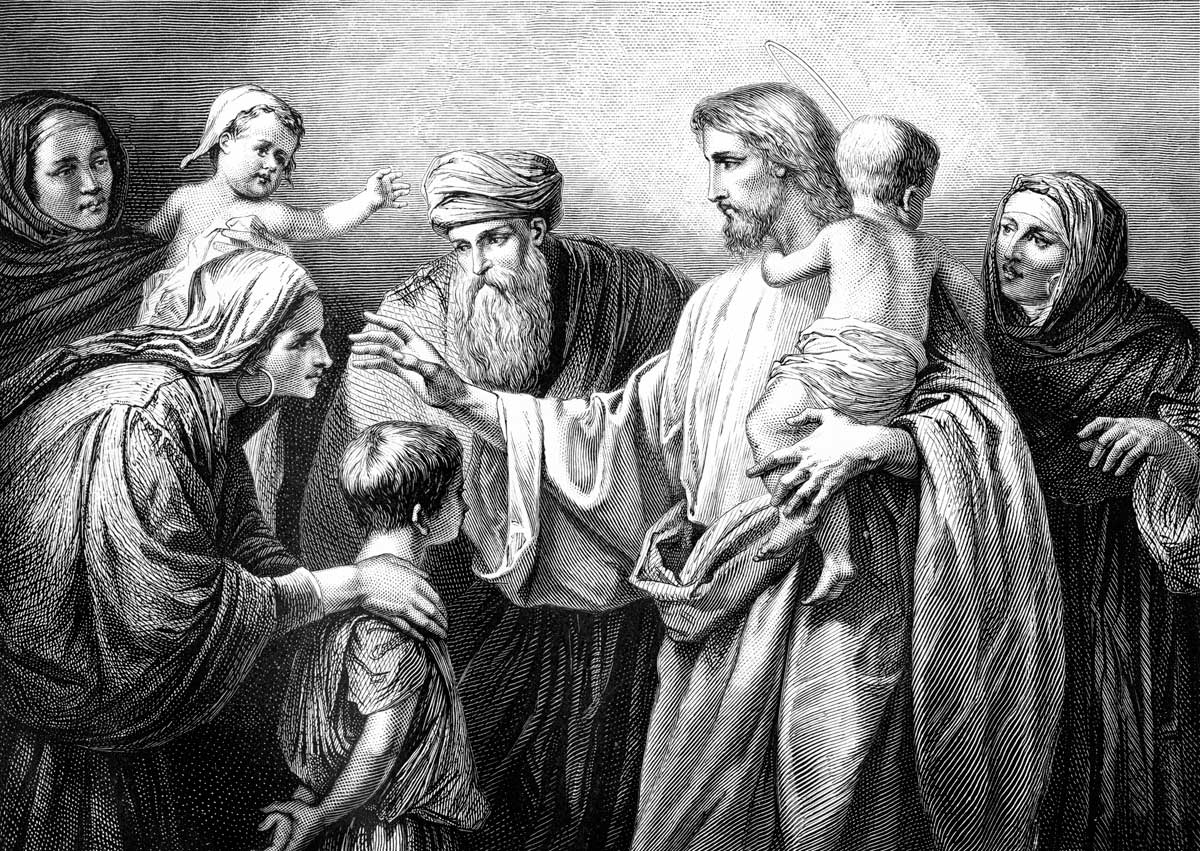Status Confessionis
The State of the World, in Which the Church Must Stand by Her Confession
by Harold O. J. Brown
What is meant by the expression, status confessionis? It is the state, or condition, of the Church, the society, the world, in which the Church must stand by and stand up: stand by her confession and stand up for the authority of the Word of God that she confesses. “Like a mighty army moves the church of God. Brothers, we are treading where the saints have trod.” Those words are still sung today, but do they have any truth in them? “If the trumpet give an uncertain sound,” the Apostle asks, “who will prepare himself for the battle?” With the great “army,” at least its Protestant divisions, it is rarely anyone other than evangelicals who talks like this; for example, James Davison Hunter speaks of Culture Wars, and Charles Colson writes of Kingdoms in Conflict. When the Church is in the status confessionis, the trumpet must give a clear sound, and the army must take up its weapons, at least its verbal weapons. Otherwise it forfeits its reason for existing.
Man, the Measure, or the Measure of a Man
Almost three decades ago, when this editor was still one of them, a number of younger theologians were asked, “What will the crucial issue be for the church, for evangelicals, in the closing decades of this millennium?” Several answered, “Biblical inerrancy.” Others said, “the deity of Christ.” Now there is no denying that each of these doctrines is a vital part of traditional Protestant faith.1 Your editor, however, said something different: the crucial question for Christians, indeed for the whole human race, will be anthropology, the doctrine of man. It will be the answer to the Psalmist’s question, “What is man, that thou art mindful of him?” (Psalm 8:4). A bolder and more self-confident age thought, or presumed, that it knew the answer. A more troubled and perplexed world no longer thinks thus.
Almost a century ago, in the golden age of philosophy at Harvard, the university decided to build a new building especially for that stellar department. The president of the university asked the faculty of the philosophy department to recommend a suitable inscription to place over the doorway. After due deliberation, they proposed the words of Protagoras, “Man is the measure of all things.” The first decade of the twentieth century was an optimistic time, la belle époche. The old foundation of human dignity as made in the image of God had crumbled, under the assaults of Darwinism, but we (or, more accurately, our predecessors of that era) believed that man was the sublime product of the evolutionary process, proud of himself and confident of his future. The summer came, the scholars scattered, as is their wont—or was their wont, before the advent of round-the-year teaching.
When those scholars of a golden past returned from their summer of refreshment to the halls of Academe that fall, they found that the president had outwitted them and written the Psalmist’s words, “What is man that thou art mindful of him?” Protagoras was set aside, but the optimistic humanism that his statement seems to have reflected continued for a few years: longer in North America than in Europe. Then the Titanic sank: a blow to the arrogance and self-assurance of autonomous man. Not long thereafter the continent of Europe erupted in fire and smoke, and millions were plunged into what Ernst Jünger described as “Showers of Steel.” The optimistic hope of the constant improvement of the race by the survival of the fittest was dashed by the mindless slaughter of the fittest in the trenches of Flanders and France, on the beaches of Gallipoli.
Perhaps, when Protagoras taught, because the world was younger and the tale of human follies had not grown so long, it was possible to be optimistic about our race and its place in the scheme of things. But after nine million slaughtered, four empires toppled, epidemics, inflation, depression, and finally, after an uneasy pause of not quite twenty-one years, a resumption of the Great War, the optimism had to fade. Many would come to agree with the great philosopher of French existentialism, Jean-Paul Sartre, L’homme n’est qu’une passion inutile, “Man is nothing but a useless passion.”
A useless passion cannot be the measure of anything, much less of all things. How did we arrive at this extremity? Solzhenitsyn said it well in the address that was his response to Harvard’s award of an honorary doctorate, an address that made him suddenly politically incorrect, even though that term had not yet been coined: “Men have forgotten God.” And not only the males, be sure, for the noun “man” in this sense, like Latin homo and French homme, is generic and includes both sexes. Men had forgotten God before. From time to time some remembered and were revived, and their civilization was renewed. But something dramatically different is going on today. As far as the human spirit, and perhaps the human race, is concerned, it may be the first stages of “the sickness unto death.” It may not be merely that we forget God, but that we make of ourselves something that God will prefer to forget.
Fabricated Man
Status confessionis: this is when the church must take a stand if she is to be anything more than a pale memory of a more confident if naive past. That time has come. Two additional phrases will help us analyze where we are, how we got here, and to see where we will inevitably be going if the church does not stop, stand, and fight, with words of judgment and deeds of love. The first of these is this: “Begotten, not made.” The late Paul Ramsey wrote a book with the title Fabricated Man, telling of the kind of man that is made, not begotten. Readers may recognize the phrase “begotten, not made” from the Nicene Creed, where it was placed to affirm the doctrine of the full deity of the Son: “In one Lord Jesus Christ, begotten of his Father before all worlds, God of God, light of light, very God of very God, begotten, not made, being of one substance with the Father, by whom all things were made.” Begotten, not made, the Son was proclaimed as possessing the same substance as the Father, the same essence, the same nature; in other words, like the Father and the Holy Spirit, the Son is proclaimed as God.
subscription options
Order
Print/Online Subscription

Get six issues (one year) of Touchstone PLUS full online access including pdf downloads for only $39.95. That's only $3.34 per month!
Order
Online Only
Subscription

Get a one-year full-access subscription to the Touchstone online archives for only $19.95. That's only $1.66 per month!
bulk subscriptions
Order Touchstone subscriptions in bulk and save $10 per sub! Each subscription includes 6 issues of Touchstone plus full online access to touchstonemag.com—including archives, videos, and pdf downloads of recent issues for only $29.95 each! Great for churches or study groups.
Transactions will be processed on a secure server.
more from the online archives
calling all readers
Please Donate
"There are magazines worth reading but few worth saving . . . Touchstone is just such a magazine."
—Alice von Hildebrand
"Here we do not concede one square millimeter of territory to falsehood, folly, contemporary sentimentality, or fashion. We speak the truth, and let God be our judge. . . . Touchstone is the one committedly Christian conservative journal."
—Anthony Esolen, Touchstone senior editor









